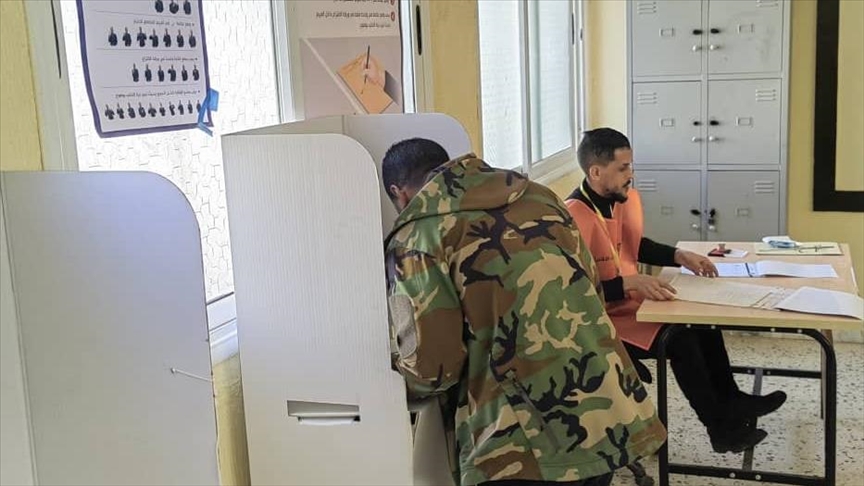Libya concludes municipal elections, vote counting underway
Preliminary voter turnout reaches 71%, with 161,684 voters participating, says High National Elections Commission

ISTANBUL
Libya’s High National Elections Commission (HNEC) said voting had concluded late Saturday and ballot counting had begun in the second phase of municipal council elections for 26 municipalities.
In a statement, the commission confirmed that “all polling stations in the 26 targeted municipalities have closed without any notable security violations.”
It added that the “counting and tallying process has begun inside polling stations.”
According to the commission, the preliminary voter turnout reached 71%, with 161,684 voters participating.
Commenting on the process, the Prime Minister of the Government of National Unity, Abdul Hamid Dbeibeh, reaffirmed his commitment to “supporting the elected municipal councils, as they are a key partner in achieving local development and enhancing decentralization, bringing governance closer to citizens and responding to their daily priorities.”
In a post on the US social media company Facebook’s platform, Dbeibeh praised “the efforts of the Ministry of Interior, which ensured the smooth running of the elections without any security violations, and most importantly, the awareness and determination of our citizens to exercise their democratic right.”
Earlier, the commission said in a statement posted on its official website that polling began at 9 am local time (0700GMT), with 26 out of 63 municipalities initially scheduled to participate after completing all required stages of the process.
However, elections in more than two-thirds of the municipalities scheduled for this phase have been suspended due to "blatant attacks" on the commission offices, including those in the western towns of Zawiya and Ajilat in recent hours.
Without naming those responsible, the commission said that the assaults are not simply the actions of local groups opposing elections but are part of a larger agenda pursued by "forces of darkness and instability" seeking to exclude Libyans from decision-making.
It added that other municipalities had their elections halted by “suspension orders issued by security institutions,” though no further details or rescheduled dates were provided.
Despite the setbacks, the electoral body expressed optimism about voter engagement, noting that turnout in this phase and the previous one reflects a “growing awareness among citizens about the importance of participating peacefully in shaping their local governance.”
“We call on all voters to head to the ballot boxes and freely express their choices,” it said, stressing that “laws and regulations guarantee the freedom and secrecy of the vote despite attempts at misinformation and disruption.”
The municipal elections are seen as a crucial step toward strengthening local governance and advancing Libya beyond its prolonged transitional period.
Libya remains divided between two rival administrations: one led by Abdul Hamid Dbeibeh in Tripoli, which controls the west of the country, and another appointed by the House of Representatives (parliament) in early 2022 led by Osama Hammad and based in Benghazi, which governs the east and much of the south.
Anadolu Agency website contains only a portion of the news stories offered to subscribers in the AA News Broadcasting System (HAS), and in summarized form. Please contact us for subscription options.







